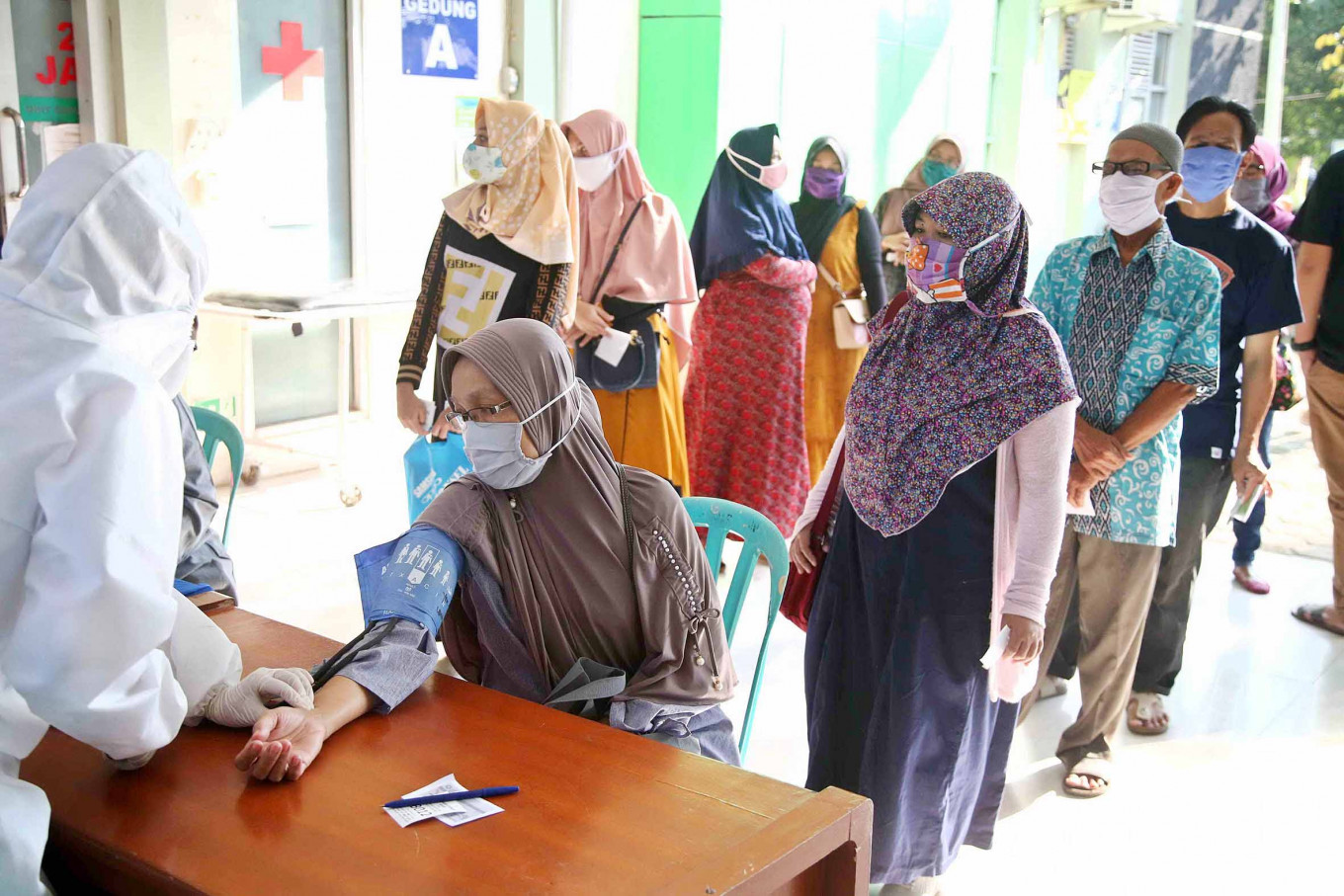Popular Reads
Top Results
Can't find what you're looking for?
View all search resultsPopular Reads
Top Results
Can't find what you're looking for?
View all search resultsImmunizing ourselves against viral vaccine misinformation
All stakeholders need to be engaged in the communication of reliable vaccine information.
Change text size
Gift Premium Articles
to Anyone
L
ately, in nearly every big issue, a considerable amount of confusing and misleading information emerges. This misinformation can be so misleading that it can impact the public psyche and behavior. What is the most important lesson going forward, especially in how we handle mass vaccination against the pandemic of the century?
We will have an ugly looming epidemic of misinformation if we do not unite to protect each other’s wellbeing. By now, many of us have apprehended that COVID-19 is spread through both symptomatic and asymptomatic carriers and that wearing masks, keeping one’s distance from others and washing one’s hands are all important. And by now we have learned that knowledge and understanding alone may not be enough, as we are still seeing a high number of infections.
Mass vaccination can offer a way out. What the world needs to know and prepare for is that the viral misinformation about the vaccine is a real threat to the much needed minimum vaccination coverage that will enable us to beat the pandemic.
In September, the World Health Organization reported that there had been a significant disruption in routine immunization services. Data from the 2018 Indonesian Basic Health Research (Riskesdas) also shows a slightly worrying trend. In the absence of supply disruption and the pandemic, we have already witnessed a decline in vaccination rates.
Now, faced with rampaging COVID-19, which has directly or indirectly claimed the lives of many, good and bad trends have emerged.
Data from The Lancet (September 2020) shows that many countries will have an adequate proportion of population that wants to be vaccinated and that these countries will be successful in achieving the much coveted COVID-19 vaccine-induced herd immunity. However, there are also countries whose population may reject vaccination.
Two main things are worrying from these countries. First, the proportion of people who want vaccination is less than the needed immunization coverage to reach herd immunity. And second, like COVID-19, viral misinformation has spread through those that are symptomatic (know and willingly spread falsehood) and asymptomatic (inadvertently spread false information), infecting the minds of many and changing their behaviors.
How can we prevent such a destructive threat from materializing in Indonesia? We have to immunize ourselves against vaccine falsehoods. We have to make society understand the importance of a COVID-19 vaccine and enable people to get vaccinated to reach the needed coverage to reach herd immunity.
This entails two issues. At the moment it is less about the delivery service but more about how we educate, enable informed acceptance and ensure behavior adaptation. Our next actions need to be guided with science and formal knowledge about health education, communication and behavioral adaptation.
The entire ecosystem has to be engaged. We can envision the engagement at multiple levels, beginning from the intrapersonal and interpersonal, organizational and community levels and reaching national level. For example, doctors can put extra effort into explaining to patients the importance of a COVID-19 vaccine. Community health center (Puskesmas) personnel can explain to local communities the importance of collective efforts in ensuring adequate immunization coverage.
All stakeholders need to be engaged to communicate and gain collective understanding. Respected local figures and village elders, too, need to be properly informed about vaccination. This mass vaccination is of national strategic importance, and national figures’ examples and words will be more important than ever.
There are three main communication elements that we need to get right. Those who give credible information, proper information channels and targeted information recipients need to have a minimum level of ability to comprehend the information.
We want highest level of immunization coverage so that we can reach herd immunity. Therefore, we need information recipients not only to understand the importance of vaccination but also to decide to get vaccinated.
Getting healthcare workers vaccinated has dual benefits. Not only will the healthcare workers get protected and thus protect patients they serve, they will also signal the trustworthiness of the vaccine they have received.
Next, reliable and cogent communication channels are important. These days, we are exposed to a lot of information on social media. While we must pay attention to the message, we must also ensure the communication reaches everyone. This means that radios with the capacity to reach rural areas, TVs and text messages will be very important in disseminating the correct information about mass COVID-19 vaccination.
Finally, the right campaign strategy to achieve herd immunity is also important. Given the stakes, nobody can do it alone. Academics with the appropriate qualifications, business owners, civil society and mass media have to convey scientifically valid information to instill public confidence and trust and muffle viral misinformation.
The fight against COVID-19 is not going to get easier. It cannot be the government’s work alone; it should be the whole nation’s task. If you have the education and the professional qualifications, speak up. Be willing to be the light that helps others understand. Be open and welcoming to those who want to ask you.
This is the pandemic of the century. We all have to redouble our efforts. Infrastructure that will enable the success of mass vaccination needs to be developed, and it needs to be developed now.
After all, we can only protect each other and ourselves if each of us is vaccinated.
-- Brian Sriprahastuti is a medical doctor with a PhD in public health. She works for the Presidential Executive Office.
-- Grace Dewi is a lecturer at Widya Mandala University, Surabaya.










